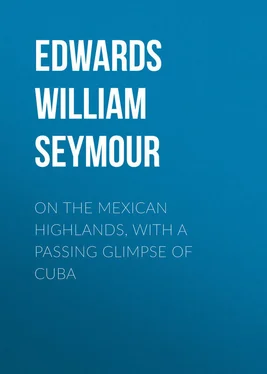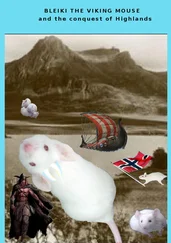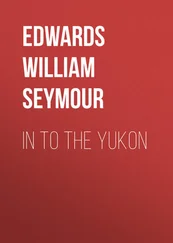William Edwards - On the Mexican Highlands, with a Passing Glimpse of Cuba
Здесь есть возможность читать онлайн «William Edwards - On the Mexican Highlands, with a Passing Glimpse of Cuba» — ознакомительный отрывок электронной книги совершенно бесплатно, а после прочтения отрывка купить полную версию. В некоторых случаях можно слушать аудио, скачать через торрент в формате fb2 и присутствует краткое содержание. Жанр: foreign_antique, foreign_prose, Путешествия и география, на английском языке. Описание произведения, (предисловие) а так же отзывы посетителей доступны на портале библиотеки ЛибКат.
- Название:On the Mexican Highlands, with a Passing Glimpse of Cuba
- Автор:
- Жанр:
- Год:неизвестен
- ISBN:нет данных
- Рейтинг книги:4 / 5. Голосов: 1
-
Избранное:Добавить в избранное
- Отзывы:
-
Ваша оценка:
- 80
- 1
- 2
- 3
- 4
- 5
On the Mexican Highlands, with a Passing Glimpse of Cuba: краткое содержание, описание и аннотация
Предлагаем к чтению аннотацию, описание, краткое содержание или предисловие (зависит от того, что написал сам автор книги «On the Mexican Highlands, with a Passing Glimpse of Cuba»). Если вы не нашли необходимую информацию о книге — напишите в комментариях, мы постараемся отыскать её.
On the Mexican Highlands, with a Passing Glimpse of Cuba — читать онлайн ознакомительный отрывок
Ниже представлен текст книги, разбитый по страницам. Система сохранения места последней прочитанной страницы, позволяет с удобством читать онлайн бесплатно книгу «On the Mexican Highlands, with a Passing Glimpse of Cuba», без необходимости каждый раз заново искать на чём Вы остановились. Поставьте закладку, и сможете в любой момент перейти на страницу, на которой закончили чтение.
Интервал:
Закладка:
Our train from the North drew in at nine o’clock, on time, all vestibuled, lighted with electricity, with a dining car attached, and all its equipment greatly superior to that of the Southern Pacific. It was one of the Gould trains from St. Louis to the far South.
Leaving San Antonio, we traversed a country still flat, always flat, covered with sand and mesquit for miles and miles and miles. As far as the eye could see in every direction, hour after hour stretched this illimitable monotonous wilderness. The mesquit trees looked like ill-grown peach trees. To my unaccustomed eye, we seemed to be passing through endless barren orchards, the trees standing generally thirty or forty feet apart. Here is the home of the jack rabbit, and toward the Mexican border and within reach of the waters of the Rio Grande, deer abound. Quail are also common, but of other life there is little or none. Here and there the mesquit trees were cut away, and wide, sandy fields were planted with cotton. Cattle also were cropping the short, dry native grass. As we traveled south the grass diminished, the sand increased and the prickly cactus became increasingly plentiful. At one of the stations where we stopped for the engine to take water, I talked with a tall white-bearded planter, who stood holding his horse, the horse accoutered with Mexican saddle and lariat, the man in high Mexican sombrero . “The labor hereabouts is all Mexican,” he said. “Mexican peons you can import in unlimited numbers, who are glad to work for thirty cents per day and board themselves. Hence there are no negroes south of San Antonio, for no negro will work and live on such small pay. Moreover, the soil is so poor and water is so scarce that neither cotton nor cattle could here be raised with profit, if it were not for the low wage the Mexican is glad to accept.”
We reached Laredo, a city of some five thousand inhabitants, about six o’clock, P. M., where I sent the following telegram, “Cane, cotton, cattle, mesquit, sand and cactus, O. K.,” which, though brief, sums up the country I have been traversing for the last two days. Laredo is upon the American side of the Rio Grande, which is crossed by a long bridge to Nuevo Laredo, in the State of Nuevo Leon. Here smartly uniformed Mexican customs officers examined my baggage and passed me through.
IV
On to Mexico City
He llegado en esta ciudad, hoy, cerca las ocho de la mañana! The moment we crossed the Rio Grande we changed instantly from American twentieth century civilization to mediæval Latin-Indian. The Mexican town of Nuevo Laredo, the buildings, the women, the men, the boys, the donkeys, all were different. I felt as though I had waked up in another world. As we approached the station of the Mexican city, I noticed an old man riding upon his donkey. His saddle was fastened over the hips just above the beast’s tail, his feet trailed upon the ground. He sat there with immense dignity and self-possession, viewing with curiosity the gringos , who had come down from the land of the distant North. He silently watched us for some moments and then rode solemnly away, while I wondered by what hand of Providence it was he did not slide off behind.
From Nuevo Laredo to Monterey, which we reached at half past ten P. M., was all one flat mesquit and cactus-covered plain; sand, mesquit and cactus; cactus, sand and mesquit, mile after mile, till darkness fell upon us, when we could see no more. Monterey is the center of Mexico’s steel and iron industries, of large tobacco manufactories, of extensive breweries. It is the chief manufacturing city of modern Mexico. Our stay was brief, and I caught only a glimpse of a cloaked and high- sombreroed crowd, hurrying beneath the glare of electric lamps, and then we passed on toward the great interior plateau of the Mexican Highlands.
During the night it grew cold. I awoke shivering and called for blankets. In San Antonio the morning had been warm and, all day, south to Laredo and on to Monterey, the heat had been oppressive. It was cold when I left Kanawha, but the chilly air had not followed me beyond New Orleans, and I had there packed into my trunk all my warm clothing and checked it through to Mexico. Passing westward through Louisiana and Texas, the mild air was delightful and I was comfortable in my thinnest summer garments. Thus dreaming of orange groves and sunny tropics I fell asleep. Now I was shivering with a deadly chill, and the thin keen air cut like a scimiter. I pulled on my overcoat, which I fortunately still had with me, and slept fitfully till the day.
We crossed, during the night, the first great mountain range which shuts out the inland plateau of central Mexico from the lowland plains stretching eastward toward the Gulf and into Texas. We climbed many thousands of feet to Saltillo, where the mercury almost registered frost. Now we were descending the inner slopes of the barrier mountains, passing near the battle field of Buena Vista, where Zachary Taylor smote Santa Anna and his dark-skinned horde, and gained the fame which made him President of the United States. We were entering that vast desolate inland plain which stretches so many hundreds of miles south to Acambaro, where we should begin to climb again yet higher ranges, crossing them at last – at an altitude of eleven thousand feet, – before we should finally descend into the high cool valley of Anahuac to the City of Mexico.
About nine o’clock, we drew up at a wayside station for breakfast ( almuerzo ). If I had known it, I might have obtained my desayuno coffee and roll at an earlier hour upon the train. We were now upon a wide-stretching sandy level. A cold mist hung over us. The scorching sun was trying to penetrate this barrier. A band of Indians wrapped to their eyes in brilliant colored blankets of native make ( zerapes ), their high-peaked sombreros pulled over their eyes, with folded arms, silent as statues, stood watching us. I deliberately took their photograph. They did not smile or move. A group of Indian women sitting on the ground near these men were not so placid. They regarded the kodak as an evil mystery and hid their faces in their rebozos when I pointed my lens at them. The strange instrument smacked of witchcraft, and they would none of it. With rebozos still drawn, they got upon their feet and fled.
In another hour the bright white sun dissipated the mists. The sky was blue and cloudless. The track ran straight, with rarely a curve, mile after mile into the South. The land lay flat as a table, an arid plain, shut in by towering, verdureless mountains, ranging along the horizon on east and west. All day we thus sped south through illimitable wastes of sand, and sage brush and cactus, and a curious stunted palm, which lifted up a naked trunk with a single tuft of green at the very end. The landscape gave no sign of ever having been blessed by a drop of water, the barren prospect extending upon all sides in apparently unending monotony.
Now and then we passed a small station made of adoby brick. Now and then, a cluster of adoby dwellings centered about a low-roofed adoby church. At one place a half wild rancherro raced along beside the train on his broncho , vainly trying to keep the pace and wildly waving his sombrero as he fell behind. At the stations were always women and children, and the ever silent men standing like statues. They never moved, they never spoke, they never smiled; they gazed at us with blank astonishment. As we came further and further south, the extreme aridness of the landscape began to lessen. Cattle began to appear upon the plain, adoby villages became more frequent, the swarthy dark brown population became more numerous. Toward midafternoon, the towers, the high walls, the red tiled roofs of a great church, a cathedral, and a town of magnitude grew large before us. We drew up at a fine, commodious station, built of red sandstone. There, gathered to meet the train, were curious two-wheeled carts and antique carriages with high wheels, drawn by mules; many donkeys bearing burdens, some with men sitting upon their hips; a multitude of dark-faced Latins, men in high sombreros , the women with heads enveloped in rebozos or mantillas . We were at the station built a mile distant from the important city of San Louis Potosí, one of the great ore-smelting centers of Mexico, and a city of sixty thousand inhabitants. In the station we dined, and I ate my first Mexican fruits, one a sort of custard apple, and all delicious.
Читать дальшеИнтервал:
Закладка:
Похожие книги на «On the Mexican Highlands, with a Passing Glimpse of Cuba»
Представляем Вашему вниманию похожие книги на «On the Mexican Highlands, with a Passing Glimpse of Cuba» списком для выбора. Мы отобрали схожую по названию и смыслу литературу в надежде предоставить читателям больше вариантов отыскать новые, интересные, ещё непрочитанные произведения.
Обсуждение, отзывы о книге «On the Mexican Highlands, with a Passing Glimpse of Cuba» и просто собственные мнения читателей. Оставьте ваши комментарии, напишите, что Вы думаете о произведении, его смысле или главных героях. Укажите что конкретно понравилось, а что нет, и почему Вы так считаете.












